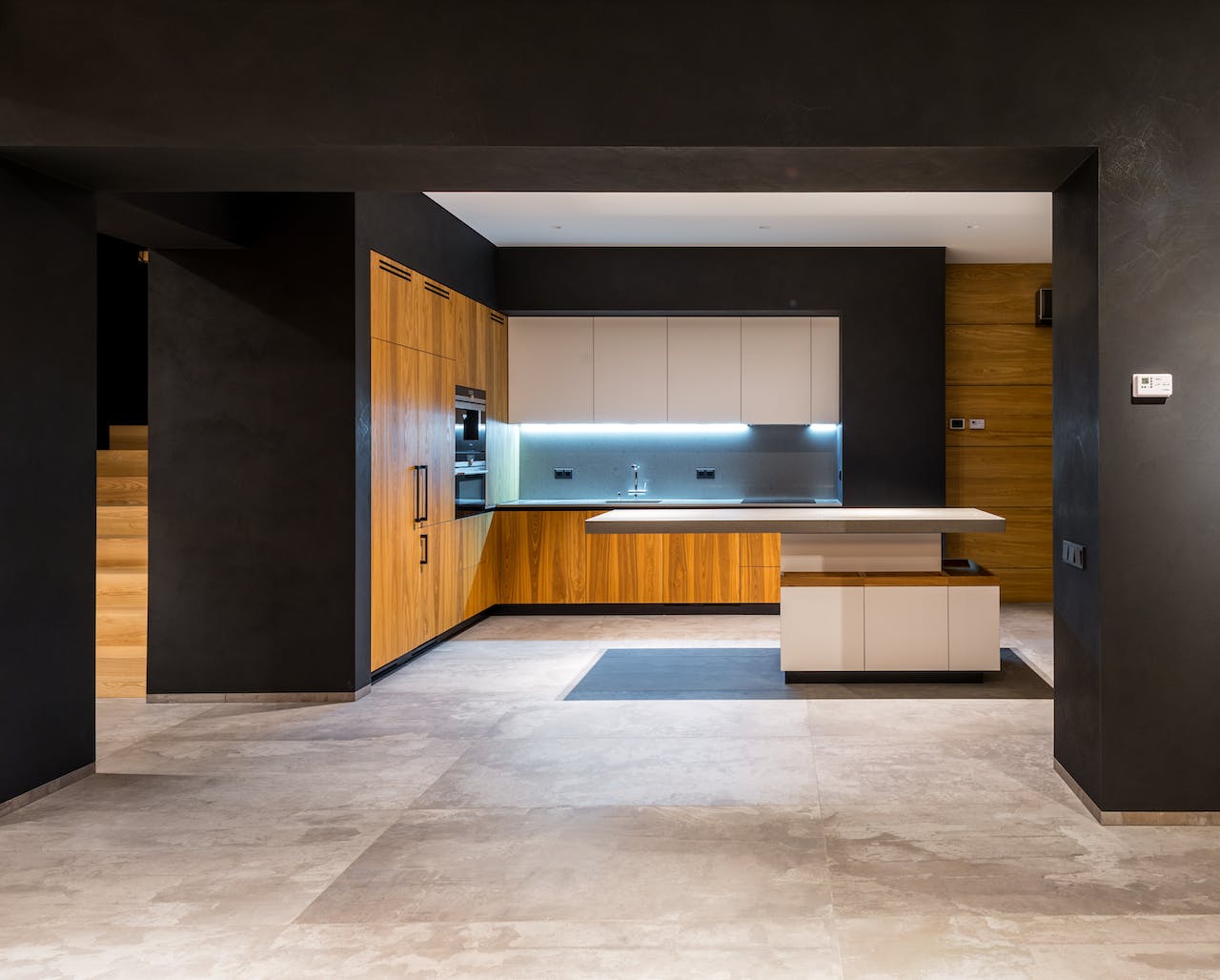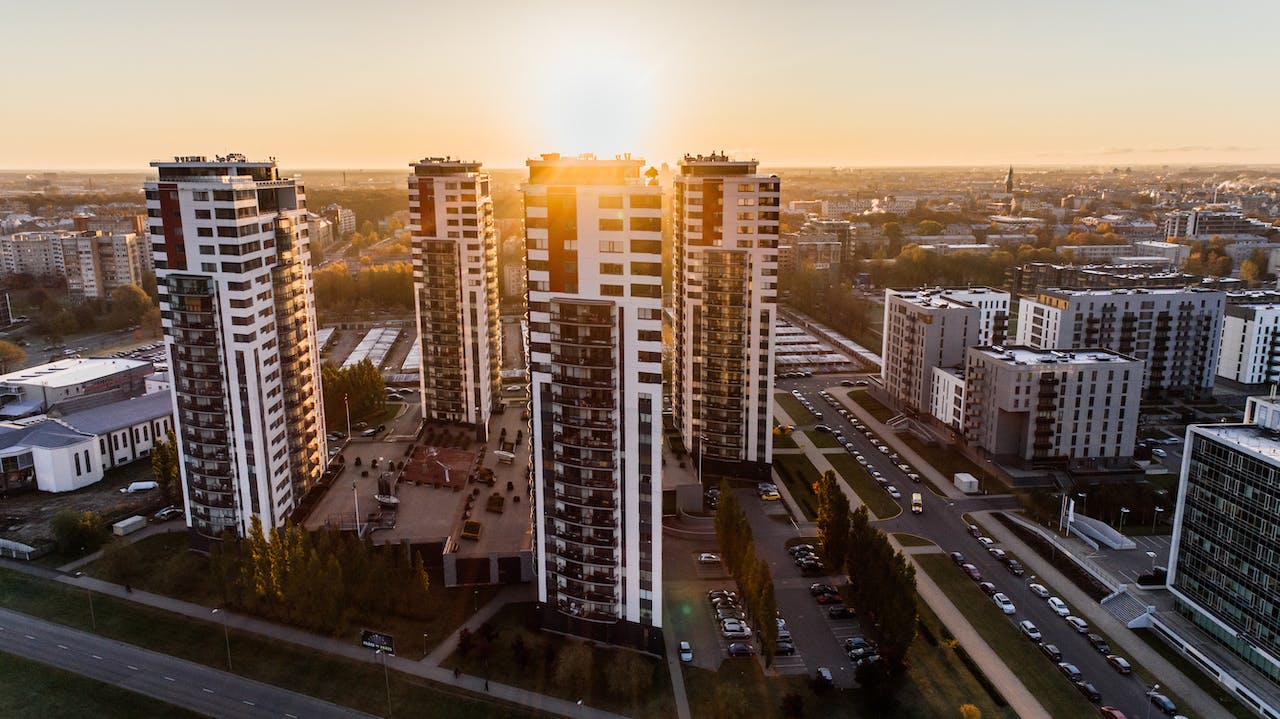Finding the right apartment is a multifaceted process that combines financial savvy with practical consideration of one’s lifestyle needs. For most people, the decision hinges on striking a balance between affordability and the various features an individual or family regards as essential, such as space, location, and amenities. This undertaking requires methodical planning, from setting a realistic budget to defining what attributes of an apartment will best support their daily life.
As the hunt for the perfect living space begins, one must consider a variety of factors, including the proximity to work or school, access to public transportation, neighborhood safety, and local conveniences like shops and entertainment. A thoughtful approach to apartment hunting can significantly reduce the stress often associated with moving. It’s not just about finding a place to sleep; it’s about discovering a space that feels like home, aligns with one’s financial limitations, and fulfills functional requirements. Creating a checklist of non-negotiables alongside desirable but optional extras can guide prospective renters through the maze of available options. Engaging with landlords and real estate agents transparently and armed with the right questions will further streamline the search.
Key Takeaways
- Striking a balance between cost and desirable features is crucial in apartment hunting.
- Location and practicalities shape the decision-making process.
- Transparent communication with landlords and agents optimizes the search.
Understanding Apartment Hunting
Finding the right apartment requires a systematic approach and clarity on what one considers essential. The process involves laying a solid foundation for the search and setting clear priorities to guide your hunt.
The Apartment Search Foundation
The foundation of a successful apartment hunt begins with understanding one’s budget. It is essential to have a clear idea of how much one can afford in monthly rent, which includes considering additional costs like utilities, parking, and possible renter’s insurance. One effective strategy is to use apartment hunting websites and apps to filter options based on price and other desired features. Additionally, one should research neighborhoods to determine the best fit in terms of lifestyle, safety, and proximity to work or school.
Setting Your Priorities
Every apartment seeker should have a list of non-negotiables and nice-to-haves. Priorities vary greatly among individuals; one might prioritize a short commute while another might look for amenities like a gym or pool. This stage also involves deciding on the type of apartment, preferred number of bedrooms, and other specific features such as pet policies. It’s advised to create a checklist and use it while touring apartments and asking pointed questions to ensure the space meets one’s essential criteria.
Financial Planning
When looking for the right apartment, a well-structured financial plan is crucial. It ensures that one’s housing choice aligns with their economic situation, preventing the risk of financial strain.
If you are short on budget, it is also a good idea to find someone who you can share an apartment with. If you need tips for this, read our article, How Can You Make Sharing a Studio Apartment Work for You?
Estimating Your Rental Budget
They should begin by determining the rental budget, which is typically the cornerstone of financial planning for an apartment. A common guideline is that rent should not exceed 30% of monthly income. This provides a balance, allowing savings and other expenses to be managed effectively.
- Monthly Income Example: $3000
- Suggested Rent Maximum (30%): $900
Monthly budget categories might include:
- Rent: 30%
- Savings: 20%
- Other Necessities: 50% (food, transport, etc.)
Considering Additional Costs
They must also account for additional costs that come with renting an apartment. These extra expenses can include utilities, renters’ insurance, parking fees, and any required maintenance costs that are not covered by the landlord. It’s essential that they factor these into their monthly expenditures to avoid unexpected financial burdens.
Selecting the Right Location
Making the right choice for an apartment location is crucial. It affects not only the value and cost but also the quality of life for residents. Critical factors such as the neighborhood vibe, accessibility to essential services, and overall connectivity shape the daily living experience.
Evaluating Neighborhoods
When evaluating neighborhoods, one should consider the demographics and culture to ensure it aligns with their lifestyle. A neighborhood’s safety and amenity offerings such as parks, restaurants, and entertainment venues are significant indicators of livability. Additionally, average rent and vacancy rates in a neighborhood can signal its popularity and affordability.
- Demographics: Research the age, lifestyle, and economic demographics to understand the community.
- Amenity Offerings: List local parks, dining, shopping, and entertainment options.
- Safety: Check local crime statistics and community safety initiatives.
Convenience and Connectivity
An ideal location offers excellent connectivity to various modes of transportation, including public transit, main roads, and highways. The proximity to key amenities such as grocery stores, schools, and healthcare facilitates is also critical. Consider commute times to work or school to ensure they are reasonable.
- Transportation Options: Availability of public transit, bike lanes, and traffic conditions.
- Proximity to Key Amenities: Distance to essential services and facilities.
- Commute Times: Calculate potential commute times during peak hours to gauge convenience.
Choosing the right location requires diligence and careful consideration of these factors to find a neighborhood that meets specific needs and enhances one’s lifestyle.
Type of Apartment and Amenities
Choosing the right apartment hinges on understanding the types of apartments available and the amenities each offers. This section will guide you through the various apartment types and help you balance essential amenities with desirable extras.
Assessing Different Apartment Types
Different apartments cater to diverse needs, from single-room efficiencies to more spacious multi-bedroom units. A studio apartment, ideal for singles or couples, offers a compact space where living areas, kitchen, and bedroom share a single room, optimizing floor plan functionality. On the other hand, larger apartments, such as one or two-bedroom units, afford greater privacy and space but typically come at a higher cost. For more information on apartment types, visit Different Types of Apartments: What to Know.
Must-have vs. Nice-to-have Amenities
When it comes to amenities, it’s crucial to differentiate between the essentials and the luxuries. Must-have amenities might include reliable heating and cooling, in-unit laundry, or secure parking, while a fitness center or rooftop garden could be considered nice-to-haves. Amenities range from practical features like dishwashers and microwaves to leisure facilities such as swimming pools. Tenants should prioritize amenities that match their lifestyle and budget constraints; a comprehensive list can be found at 63 Apartment Amenities to Add to Your List.
The Search Process
The process of finding the right apartment involves diligent use of resources available online and through personal networks. It’s important to navigate through online listings with care and to harness the power of social media and networking to uncover various opportunities.
Utilizing Online Listings
Online listings provide a substantial platform for apartment searchers. Key to this process is employing search filters to narrow down options; they can adjust parameters such as price range, location, number of bedrooms, and amenities.
Leveraging Social Media and Networks
Social media platforms can be powerful tools in the apartment hunt. Informing your network about your search can lead to personal referrals which may not be listed elsewhere. Engaging in community groups on platforms like Facebook and checking dedicated housing threads can unearth exclusive deals. It’s essential to remain active, responsive, and courteous when interacting within these networks to maintain a good reputation among potential referrers.
Dealing with Landlords and Agents
When it comes to finding the right apartment, effective communication with landlords and engaging with real estate brokers can dramatically impact your rental experience. Awareness of their roles and building a professional rapport is vital for a smooth tenancy.
Communicating with Property Managers
A property manager acts on behalf of the landlord and is your primary contact for any apartment related issues. Communicating clearly and promptly with them is crucial. They manage maintenance requests, lease agreements, and enforce property rules. To ensure your communications are taken seriously, always put them in writing and be specific about your requests or concerns.
- Maintenance requests: Send an email detailing the issue, with photos if possible.
- Lease discussions: Request a sit-down meeting or a video call for clarity.
Engaging with Real Estate Brokers
Real estate brokers are intermediaries who can help you navigate through the pool of available apartments. They are well-versed in the market and can provide tailored property searches to match your preferences and budget. When engaging with brokers:
- Budgeting: Clearly state your budget constraints.
- Preferences: Communicate must-have amenities and preferred location.
Visiting Potential Apartments
When it’s time to search for the right place to live, visiting potential apartments is a pivotal step. One must scrutinize each apartment, comparing amenities, environment, and overall condition to their checklist to ensure it matches their vision of a dream apartment.
Arranging Apartment Tours
Preparation is key before embarking on apartment tours. Interested renters should reach out to property managers or landlords to schedule visits, ideally arranging multiple viewings to efficiently compare options. One effective strategy is to organize tours by location or availability, grouping together possible apartments in the same area or those open for viewing on the same day. Here’s a quick checklist to streamline scheduling:
- Contact Properties: At least a week in advance.
- Group by Location: Reduce travel time.
- Verify Appointments: A day before the tour.
What to Look for During Visits
During each apartment tour, they should be keen on gathering as much information as possible. It is helpful to take photos for later comparison, especially of areas that may need repair. Below is a table listing what to observe during the visit:
| Aspect to Examine | Details |
|---|---|
| Space Layout | Does the flow of the rooms make sense? Are there enough outlets, and is the space usable for their needs? |
| Natural Light | Is there sufficient sunlight exposure, or will they need additional lighting? |
| Storage | Are the closets and storage areas ample and easily accessible? |
| Noise Levels | Is the apartment exposed to street noise or loud neighbors? |
| Amenities | Do the amenities line up with their needs (laundry, parking, fitness center, etc.)? |
They should also take this opportunity to inquire about maintenance procedures, rules regarding customization or decoration, and if there are any upcoming renovations or changes to the property.
Legal Considerations
When finding the right apartment, tenants must be aware of the legal particulars that govern their lease. These legal considerations ensure rights and responsibilities are clearly outlined and agreed upon.
Understanding Lease Terms
Lease terms define the duration and conditions of the tenancy. They typically include:
- Lease Length: The standard lease term is often one year, but it can vary from short-term leases to multi-year agreements. Tenants should confirm the lease length to align with their living needs.
- Lease Terms: These include policies on pets, subleasing, and alterations to the property. Tenants must review these terms carefully to ensure they can comply with the rules set forth.
Understanding these components helps tenants avoid legal issues during their tenancy.
Reviewing Lease Agreements
Before signing a lease, a thorough review of the agreement is critical. Tenants should focus on:
- Signing a Lease: Ensure all parties understand and agree to the terms before signing. Check for clauses that may need negotiation.
- Paperwork: Verify that all required paperwork is present, accurate, and complete. This includes disclosures and addendums that are part of the lease agreement.
Careful review and comprehension of lease documents prevent future misunderstandings and legal complications.
Roommates and Shared Spaces
When searching for an apartment, considering who one lives with and how shared spaces are managed can be as important as the apartment itself. Finding a roommate who aligns with one’s lifestyle and setting clear shared living rules are critical to harmonious cohabitation.
Choosing a Compatible Roommate
Selecting a roommate calls for more than just picking a friend or family member; it requires thoughtful compatibility analysis. They should ideally share similar daily routines, cleanliness standards, and respect for privacy. Utilizing services like Roommate Finder can aid in this process by connecting individuals with potential roommates who have compatible living preferences and habits.
- Responsibilities: Discuss and divide household responsibilities such as cleaning, cooking, and grocery shopping.
- Lifestyle: Align on quiet hours and social preferences to ensure each roommate’s home life is respected.
- Financial: Be forthright about each person’s budget for rent and utilities to prevent future conflicts.
Setting Shared Living Rules
Establishing a set of shared living rules is essential for maintaining a comfortable environment for all parties involved. Clearly defined rules help manage expectations and reduce the potential for disputes.
- Noise: Agree on acceptable noise levels and quiet hours.
- Visitors: Set guidelines for having visitors, including frequency and duration of stays.
- Common Areas: Keep shared spaces like the living room and kitchen tidy, with a schedule for cleaning.
By meticulously choosing a compatible roommate and setting shared living rules, individuals can contribute to a peaceful, enjoyable shared living experience.
Preparing for Move-in
When preparing to move into a new apartment, tenants must meticulously plan the transition and attend to last-minute details to ensure a smooth move-in day.
Planning Your Move
They should start by confirming the move-in date and arranging the logistics. If the tenant decides to hire professional movers, they need to schedule the service well in advance to secure a spot. It’s imperative to create a detailed checklist that includes:
- Transfer of utilities: Gas, electricity, water, and internet
- Update of address: Postal services, bank details, and subscriptions
- Packing strategy: Labeling boxes by room and importance
The floor plan of the new apartment should be carefully studied to determine the placement of furniture. Tenants may wish to create a floor plan of their new apartment for this purpose.
Handling Last-Minute Details
As the move-in day approaches, they must focus on the details that often get overlooked in the hustle of planning:
- Emergency kit: Pack essentials like toiletries, snacks, and a first-aid kit
- Cleaning supplies: Essential for cleaning the apartment before unpacking
- Apartment inspection: A meticulous walkthrough to check for pre-existing damages
Confirming access to the building, elevator reservations, and parking arrangements a few days prior to moving can be crucial. It’s also beneficial to inquire about the rules related to moving in, as some buildings have specific requirements or limited move-in hours.
Frequently Asked Questions for Finding the Right Apartment
When embarking on the search for the ideal apartment, one is faced with numerous considerations. This section addresses common inquiries with the aim of simplifying the process.
- What are the most effective resources for finding apartments for rent? – Individuals seeking rental properties typically find success through online platforms.
- How can I quickly locate a suitable apartment? – Speed and efficiency in apartment hunting can be improved by utilizing online resources that aggregate listings. Setting alerts for new listings can also expedite the process.
- What strategies help identify a safe neighborhood when searching for apartments? – Researching crime statistics online and consulting local law enforcement’s crime reports can provide insights into the safety of a neighborhood. Additionally, one may consider visiting the area at different times to assess the environment firsthand.
- What are the best practices for finding apartments available directly from owners? – Networking through social media groups and local community boards often leads to finding apartments rented out directly by owners. Direct listings may also appear on online marketplaces, offering an opportunity to bypass management companies.
- How can someone with poor credit secure an apartment lease? – Prospective renters with poor credit may increase their lease-securing chances by offering a larger security deposit or finding a cosigner. Demonstrating proof of stable income can also be persuasive.
- What factors should I consider when selecting my first apartment? – First-time renters should prioritize their budget, the location’s convenience, and the included amenities. Exploring tenant reviews may provide additional insights into the living experience.
Final Thoughts
The journey to finding your perfect apartment is a blend of thorough research, clear priorities, and a bit of patience. The essential tips highlighted in this blog post are designed to streamline your search and help you navigate the often complex world of apartment hunting. From setting a realistic budget to considering the location and amenities, each aspect plays a crucial role in determining your living experience. It’s important to remember that while compromises might be necessary, understanding your non-negotiables will guide you in making a choice that aligns with your lifestyle and needs. Additionally, the significance of inspecting the property and understanding the lease terms cannot be overstated, as these steps ensure that you are well-informed and protected as a tenant.
Ultimately, finding the right apartment is about balancing practicality with your personal preferences. By utilizing online resources, seeking recommendations, and conducting thorough visits, you can gather valuable information to make a well-informed decision. Keep in mind that the perfect apartment doesn’t just meet your immediate needs but also complements your long-term goals and lifestyle. Therefore, take your time, be diligent in your search, and don’t hesitate to ask questions. With the right approach and mindset, your perfect apartment search can be a rewarding journey that leads you to a place you’re proud to call home.





